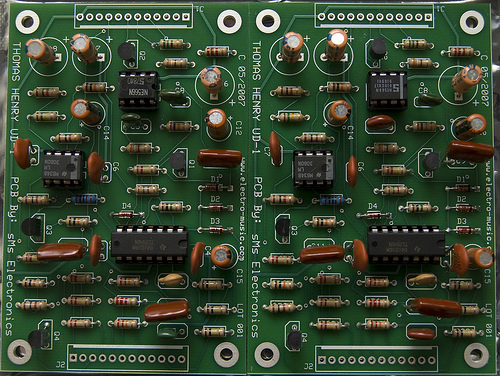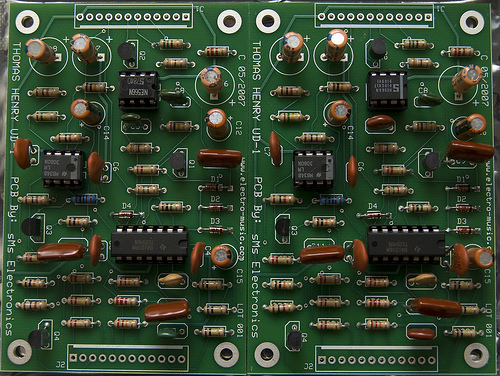 Photo: George MacklinDesigner and TED fellow Dominic Muren wants you to update your electronics like you update your wardrobe. In other words, he thinks you should be able to replace or update only what gets worn out, instead of tossing and re-purchasing everything you own at one whack just because one part is busted or old or doesn’t fit your lifestyle anymore.
Photo: George MacklinDesigner and TED fellow Dominic Muren wants you to update your electronics like you update your wardrobe. In other words, he thinks you should be able to replace or update only what gets worn out, instead of tossing and re-purchasing everything you own at one whack just because one part is busted or old or doesn’t fit your lifestyle anymore.
Who really ever buys all new clothes? Instead, we modify a little at a time, replacing parts that wear out, of adding new pieces as our lifestyle changes. I needn’t point out that clothing is one of the few products manufactured in a distributed way, across the US, by small designer/manufacturers. Why can’t we have the same for electronics? How do we encourage designers to contribute to an ecosystem of pieces, rather than forcing users to buy entirely new clothes every few years?
So instead of buying Happy Meal gadgets — already put together out of ingredients you’ll never see — you’ll go grocery shopping for components, and gin up something that’s more to your tastes. It’s the “slow food” movement of consumer goods.
In many cases, you can in theory already do this, if you have a multitool and some elbow grease. But consumer goods aren’t built to make it easy, or particularly functional. Muren knows why — when your stuff is manufactured by a few large, centralized industries, it’s more cost-effective to make prefab products with mass appeal, rather than manufacturing modular pieces that can be put together to the user’s specs. But he wants to change the status quo.
… I do think that many coordinated, decentralized, small manufacturers could make this model work. And, if the right infrastructure was in place to share specifications for useful collections of modules, then I suspect this global manufacturing network could produce designs which were better than any large centralized producer — because the local curator/designer of a product would be better able to match the needs of a local customer.
Read more:
“Can We Make Electronics Without Factories? The Future of Gadget Design,” Treehugger
Humblefacture and The Humblefactory, Dominic Muren’s site



